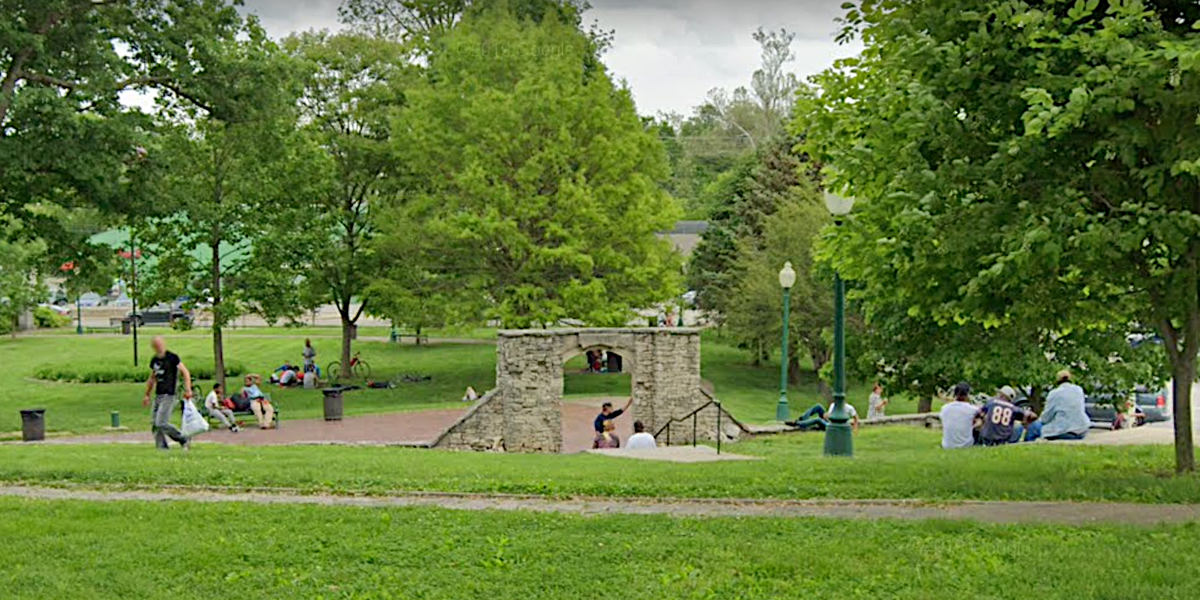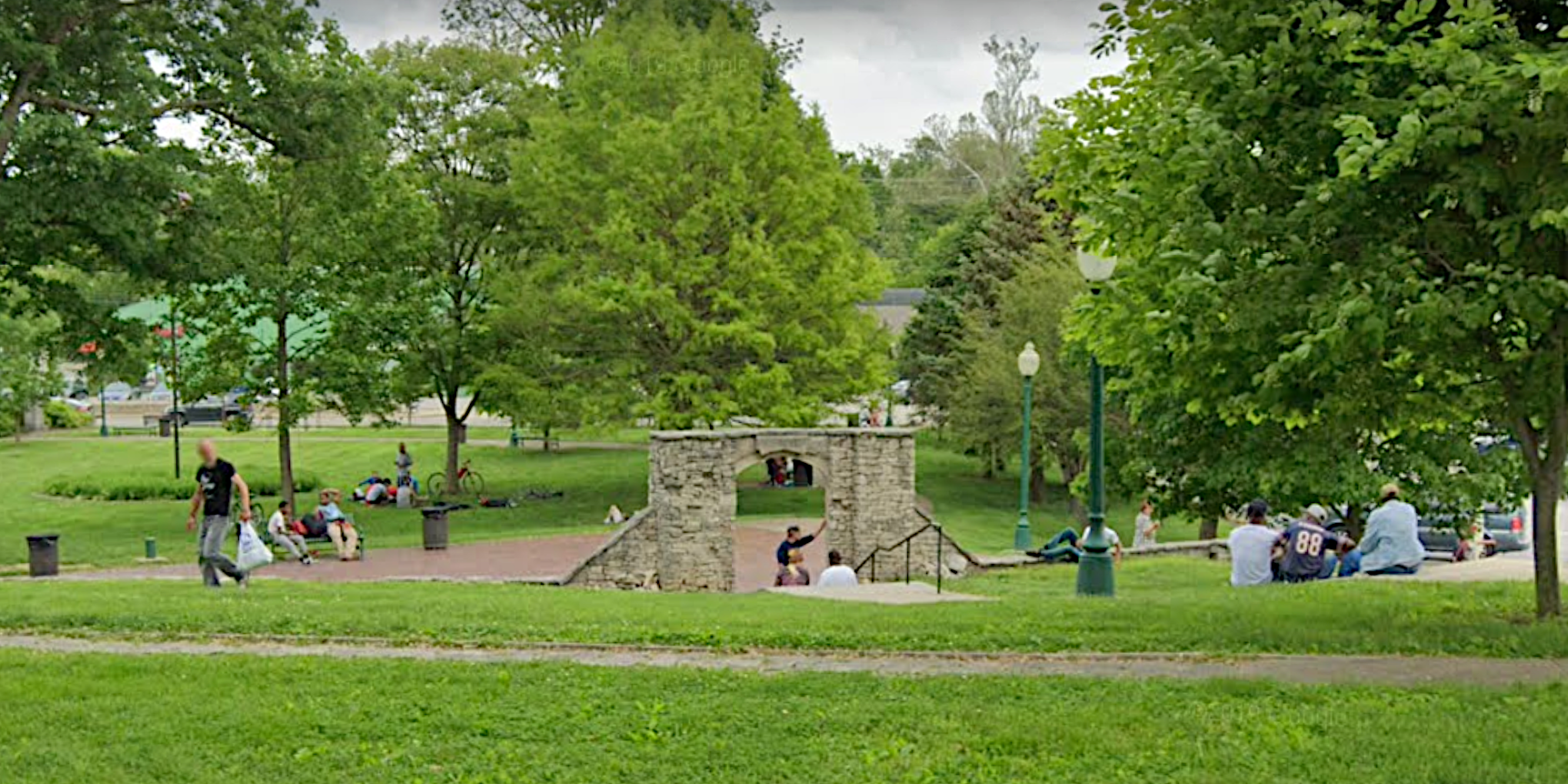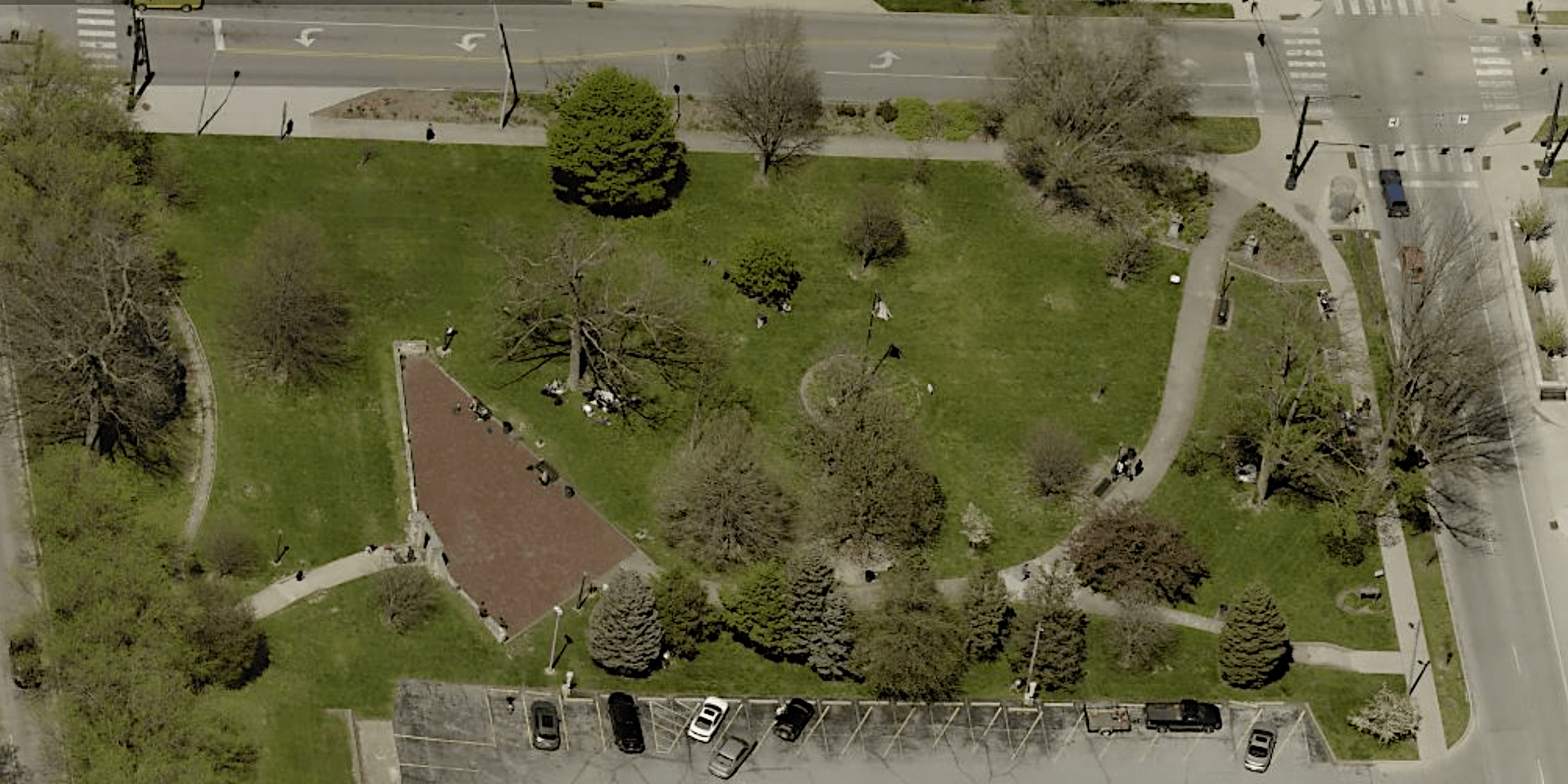$50K for “Public Health in Parks” gets OK from Bloomington board, after sharp scrutiny



A new program called “Public Health in Parks” got unanimous approval from Bloomington’s four-member board of park commissioners at a special meeting called for Tuesday night.
The program is a partnership between the parks department, Centerstone, Inc., IU Health Bloomington, and Monroe County’s health department. Centerstone is a nonprofit that provides mental health and substance use disorder services.
It builds on an existing arrangement between the parks department and Centerstone. The existing agreement is a jobs program—Centerstone clients work with park operations staff at landscaping and maintenance tasks. Also approved on Tuesday was an addendum to the agreement that expands the existing program.
The $50,000 in funding for Tuesday’s two agenda items was approved by Bloomington’s city council on Aug. 12 as part of a $2 million COVID-19 recovery package.
The board’s vote on the new Public Health in Parks initiative was unanimous, but came with some sharp criticism from board member Les Coyne. He sees the possibility of “mission creep” and wants the program considered in the context of the parks department’s mission. If it’s going to include social services, Coyne wants that to be implemented in the context of the parks comprehensive plan.
Coyne’s motion to approve the program included a requirement that the board of park commissioners be included in the initial evolution of the program, scheduled for December. Also a part of Coyne’s motion was a requirement that it be called an “experiment” not a “pilot”—so that “we don’t have any notion of committing to it in the future.”
The idea for the Public Health in Parks program is to establish a presence in some of Bloomington’s parks through a street outreach staffer from Centerstone. The staffer will help monitor activity in the park, with an eye towards connecting people, including those without permanent housing, with services they need. Some of the parks in Bloomington get a lot of use by those experiencing homelessness.
A popup tent will be set up as a distribution point for disposable masks and gloves, sanitizing products, winter accessories, and snacks. Parks to be included in the program are: Seminary, Switchyard, Butler and Building Trades parks.
Greg May, who’s Centerstone’s administrative director, talked at Tuesday’s meeting about the longer-term effort it takes to build relationships between people who use parks like Seminary. The park is just north of the post office at the intersection of Walnut and 2nd streets.
May said that for the existing program, where Centerstone’s clients work on parks maintenance, a crew cleans up the park in the morning and goes back as needed in the afternoon. But having a staff outreach person in the park for several hours through the day, will give Centerstone a chance many to build relationships and have “eyes on the park,” May said.
May said there’s a common misunderstanding that when Centerstone shows up and offers someone care that they’re excited about it and take the offer the first time. “For people experiencing homelessness, we may have to have 15 to 20 contacts with them before we’re able to build some kind of rapport. Where they’re able to trust us, and we’re able to help them move forward in a way that is helpful to them.”
One thing that bothered park commissioner Les Coyne was a lack of specificity about the metrics for success. He described the section outlining the goals of the program as “pretty light.” Coyne also said, “Quite honestly, this is pretty loose in my book. I’m uncomfortable with it.”
Jess Klein, who’s the health and wellness coordinator for Bloomington’s parks department, pointed Coyne to a section of the proposal that talks about how the program will be reviewed. In December the program is supposed to be evaluated. That’s when the community partners on the program will meet again to discuss it. It will be evaluated in part based on data collected on the number of syringes specifically found in the parks. That will include syringes found on the ground as well as in the already-installed sharps containers, Klein said.
Also factoring into the evaluation will be the type of public comments that are received about these sites, especially Seminary Park, Klein said. Coyne responded by saying that most of the evaluation sounded like it would be anecdotal. Klein countered by saying the data on syringes would be quantitative.
Coyne was also bothered by what he called the potential for “mission creep” by the parks department. Addressing parks and recreation department director Paula McDevitt, Coyne said, “You and I have talked about: Are we in the social work business? Is that part of our mission? And I think you and I have understood, we’re not in that business. Now, we may go into that business, maybe through the master plan or whatever. But I see this as a significant mission creep into that area.”
Coyne also said, “There’s a lot of money going on here and what I sense is happening here, and I’ll cut to the chase: I think what the partnership is doing is building a social work platform for homeless persons in several parks—but primarily Seminary.”
Coyne added, “I don’t like cops rolling in there, and busting people and, and so forth. I don’t have the answer… But do we give over our parks to the homeless? I don’t think the people in Bloomington will settle for that. I’m not for it.”
Coyne clarified that he supported the idea of the program, “I’m definitely OK with this idea. But let’s put it under our mission, if that’s the case, and have a comprehensive approach to the homeless thing before we bite off a chunk of it.”
Coyne supported the program with two conditions: (1) that there be a review of the program in December that includes the board of park commissioners; (2) that it not be called a “pilot” but rather an “experiment.”
Chair of the board of park commissioners, Kathleen Mills, said she didn’t understand the word “pilot” to mean that there was any commitment to it in the future. About the timing of for the review, Mills said, “Evaluating it in December seems pretty perfect to me.”
Mills added her personal perspective: “Seminary Square Kroger is my Kroger, and I’m over there twice a week. And you know, people are hurting. It’s not a good situation.” Mills said that those who are not experiencing homelessness don’t necessarily feel comfortable using Seminary Park.
“I’m for anything that that tries this out and sees how it works,” Mills said. She called the program a better response than in typical communities, which is to make a lot of calls to the police. That doesn’t necessarily lead to any long-term solutions, Mills said.
The next regular meeting of the board of park commissioners is set for Sept 22.




Comments ()